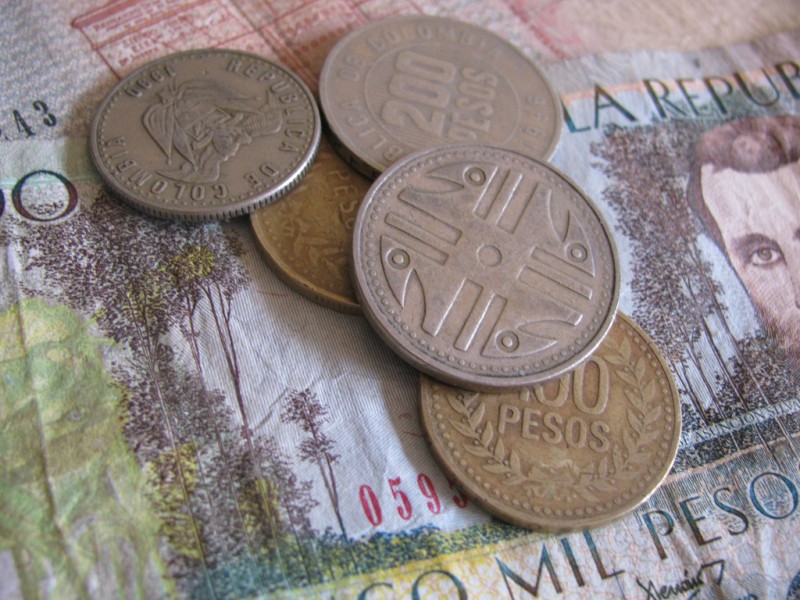Colombia updates its minimum wage annually at the very end of the year. On December 30, 2014, the government raised it 4.6 percent to 644,350 Colombian pesos ($273). On social media, the disappointment of many has been palpable. With rising inflation, the new year promises little improvement in workers’ purchasing power, though a few extra pesos in hand might cushion the rising prices expected in 2015, according to El Colombiano.
Nevertheless, the real issue for many Colombians remains improving their economic capabilities and the quality of their lives, which the government has promised to do:
Si la economía Colombiana es la q más crece en América Latina según Gbno Nacional,entonces salario decretado es inaceptable @Teleantioquia
— Jorge Ivan Diez. CGT (@JorgeDiezCGT) January 6, 2015
If Colombia has the fastest growing economy in Latin America according to the national government, then the mandated minimum wage is unacceptable. @Teleantioquia
The Zona Jobs blog explains the process for setting the minimum wage:
On December 3, negotiations will begin regarding the legal minimum wage for 2015, and the deliberation committee is ready to start suitable negotiations starting on the established date.
The same committee will be led by the current Minister of Labor, Luis Eduardo Garzón, who has already set the date starting from December 5 (two days after this agreement). Respective hearings will be made for employers and employees to present their various proposals while the National Administrative Department of Statistics (NADS) will present its proposal on December 9.
Stefa Vásquez was decidedly unimpressed with the minimum wage hike:
Y bueno señores.. El salario mínimo sigue siendo así de literal mínimo….
— Stefa Vásquez (@StefaVasquez) January 1, 2015
Well guys…the minimum wage stays at the very minimum…
Álvaro González had a different take on the increase, pointing out the different salaries residents earn across the country. Some receive a lot, relatively speaking, while others get very little for their work:
Si primero fijan el salario máximo será mucho más fácil acordar luego el salario mínimo
— ÁlvaroGonzálezUribe (@alvarogonzalezu) December 17, 2014
If they first fix the maximum wage, then it’ll be easier to agree on a minimum wage later.
Juan Greiffenstein notes that peace begins with better economic policies:
Empresarios digan también: soy capaz de pagar un salario mínimo justo y más equitativo. Por ahí comienza la paz
— juan greiffenstein (@jgreiffenstein) December 3, 2014
Tell us, businessmen: I can pay you a fair and equitable salary. Then there will be peace.
Along those lines, Gustavo Bolívar compared the minimum wages of 2014 and 2015, using the US dollar:
Hace 1 año el Salario Mínimo era de 325 dólares. Hoy está en 262 dólares, como en 2009. El 2do peor de la zona. Solo en Perú pagan peor.
— Gustavo Bolívar (@GustavoBolivar) January 7, 2015
Meanwhile, blogger Giovanny Cardona Montoya asked in a local newspaper: Is the minimum wage fair for Colombian workers? He argued:
The minimum wage is earned by a large percentage of Colombian workers (50 percent), therefore increasing it should be a great national interest.








3 comments
Interesting article, but I would like to point out an issue with the translation of this tweet: “Empresarios digan también: soy capaz de pagar un salario mínimo justo y más equitativo. Por ahí comienza la paz”. The correct translation should be: “Tell us, businessmen: I can pay you a fair and equitable salary. Peace starts from there.”
Increasing the salaries of 50% of a population equally will only, immediately, increase inflation by an equal amount. It is basic economics.